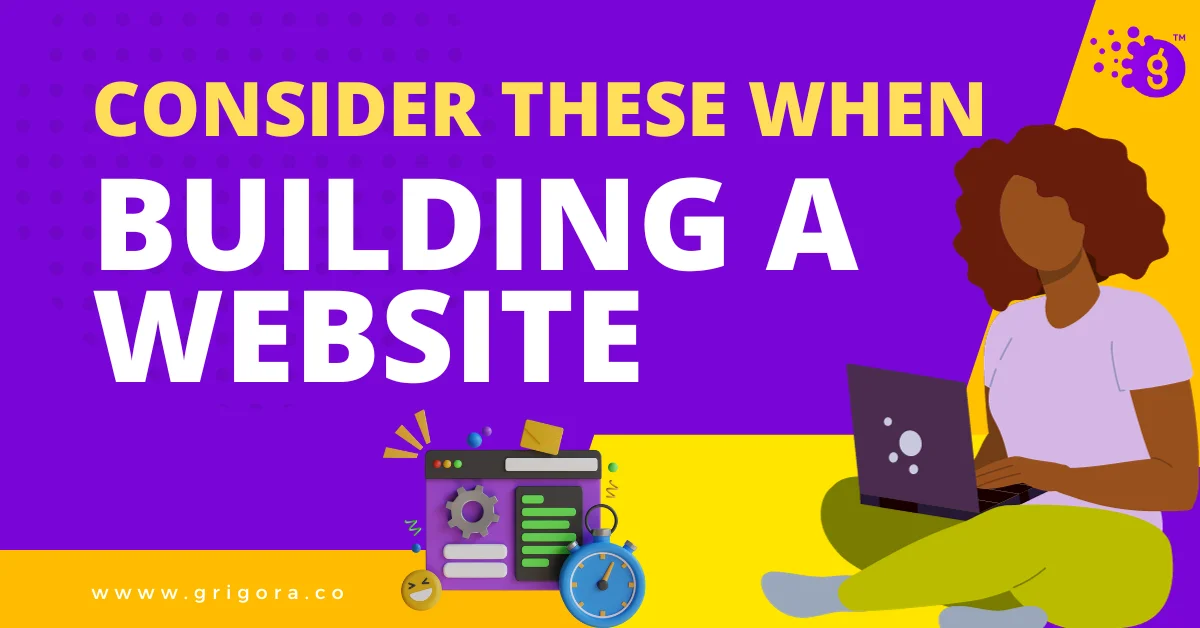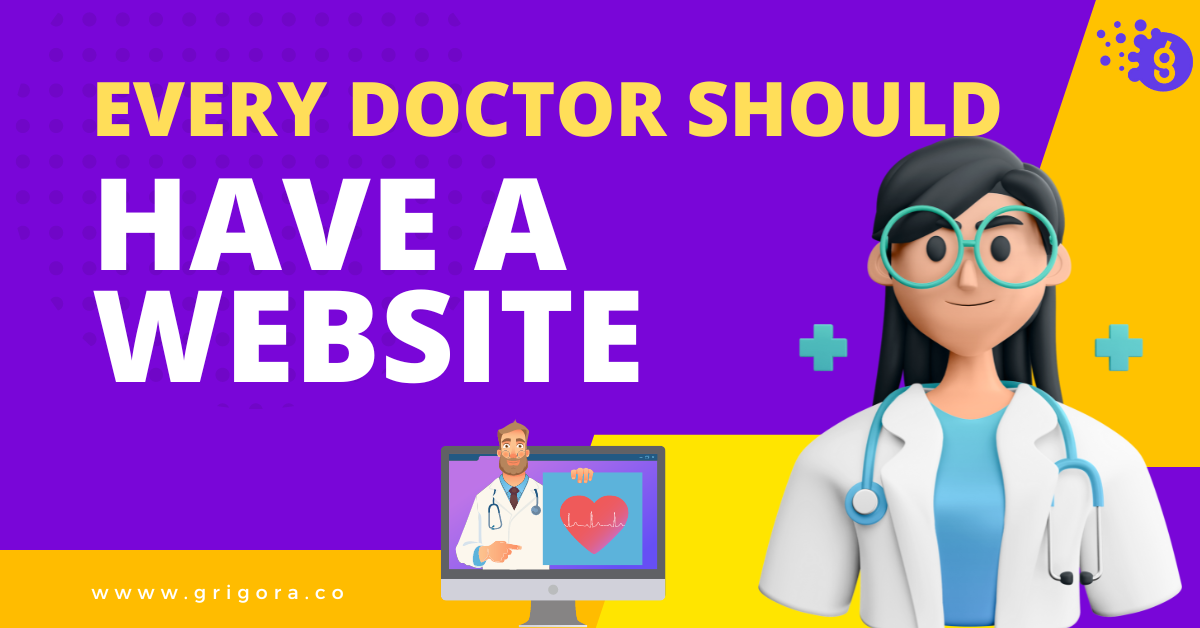Introduction
A website is the window through which your business says hello to the world.
Amit Kalantri
The Importance of a Website
In today's digital age, having a website is not just an option; it's a necessity. Whether you're a small business owner, a freelancer, or an organization, a website serves as your online identity. It's the platform where potential customers, clients, and followers can find and interact with you.
The Challenges
Building a website might seem straightforward, but it comes with its own set of challenges. From choosing the right platform and design to understanding SEO and analytics, the process can be overwhelming, especially for those who are not tech-savvy.
Scope of the Article
This article aims to guide you through the key considerations when building a website. We'll cover everything from planning and strategy to design, technical aspects, and even post-launch maintenance.
25 Crucial Factors to Consider for Successful Website Building

Building a website involves more than just a good design and content. Here are 25 crucial factors that you need to consider to ensure your website is not just good, but great. From planning to launch and maintenance, each factor plays a vital role in your website's success.
Purpose and Goals: Knowing your website's objectives helps in tailoring design, content, and functionality. It serves as the foundation for all subsequent decisions.
Target Audience: Understanding your audience helps in creating content and features that meet their needs, ultimately leading to higher engagement.
Budget: A well-defined budget helps in allocating resources efficiently, ensuring you get the best ROI on your website development.
Timeframe: Setting a realistic timeline helps in planning and executing each phase of development without unnecessary delays.
Platform Choice: Whether you choose a CMS or a custom-built solution will impact the website's flexibility, scalability, and ease of use.
Domain Name: A memorable and relevant domain name makes it easier for users to find your website and lends credibility to your brand.
Hosting: A reliable hosting service ensures your website is accessible at all times, affecting both user experience and SEO.
Design and Layout: A well-designed layout not only looks good but also enhances usability, keeping users engaged longer.
Mobile Responsiveness: With the increasing use of smartphones, a mobile-optimized website is essential for reaching a broader audience.
Navigation: Intuitive navigation makes it easier for users to find what they're looking for, improving overall satisfaction.
Content Strategy: A well-planned content strategy helps in providing valuable information to users and improving SEO.
SEO: Implementing SEO best practices increases your website's visibility on search engines, driving more organic traffic.
Social Media Integration: Social sharing buttons make it easier for users to share your content, increasing your website's reach.
Call-to-Action: Effective CTAs guide users on what steps to take next, improving conversion rates.
User Experience (UX): A focus on UX ensures that users find your website easy to use, encouraging them to return.
Security: Implementing security measures like SSL protects user data and builds trust.
Page Load Speed: Faster loading times improve user experience and contribute to higher search engine rankings.
Analytics: Monitoring tools help you understand user behavior, enabling data-driven improvements.
Testing: Rigorous testing helps identify bugs and usability issues before they can affect your users.
Feedback Loop: A system for collecting user feedback provides insights into what's working and what needs improvement.
Legal Pages: Including legal pages like a Privacy Policy is not just good practice, it's often legally required.
Backup: Regular backups protect against data loss due to technical issues or security breaches.
Updates and Maintenance: Keeping your website updated ensures it remains secure, functional, and relevant.
Launch Strategy: A well-planned launch helps in creating initial buzz and drives early traffic to your website.
Post-Launch Analysis: Regularly reviewing analytics and feedback post-launch helps in fine-tuning your website for better performance.
Planning and Strategy
Purpose and Goals
Identifying Objectives
Before you dive into the technicalities of building a website, it's crucial to identify what you want to achieve with it. Are you looking to sell products, showcase a portfolio, or perhaps provide informational content? Your objectives will guide every subsequent decision, from design to functionality.
Target Audience
Understanding your target audience is equally important. Are you targeting young adults, professionals, or maybe a more general audience? Knowing your audience will help you tailor the website's content, design, and features to meet their specific needs and preferences.
Budget and Resources
Cost Estimates
Building a website involves various costs, including domain registration, hosting, and possibly design and development services. It's essential to budget for these expenses in advance to avoid any financial surprises down the line.
Time Investment
Creating and maintaining a website also requires a significant time investment. Whether you're doing it yourself or hiring professionals, be prepared to dedicate time to the project.
Choosing a Platform
CMS vs. Custom Build
You can either use a Content Management System (CMS) like WordPress or opt for a custom-built website. Each has its pros and cons, but CMS platforms often provide a quicker and more user-friendly solution.
Why Choose Grigora
If you're looking for a platform that combines the best of both worlds, consider Grigora. Grigora offers the ease of a CMS with the flexibility of a custom build, making it an ideal choice for a wide range of website needs.
Design and User Experience
Visual Elements
Layout and Structure
The layout and structure of your website are the backbone of the user experience. A clean, intuitive design not only looks professional but also makes it easier for visitors to find what they're looking for.
Color Scheme and Typography
Choosing the right color scheme and typography is more than just an aesthetic decision. These elements play a crucial role in how users perceive your brand. Stick to a consistent color palette and font family to create a cohesive look and feel.
User Experience (UX)
Navigation
Navigation is a cornerstone of good user experience. Menus should be easy to find and use, with clear labels for each section. A search function can also enhance usability, especially for content-rich sites.
Mobile Responsiveness
In today's mobile-first world, your website must be responsive. This means it should look and function well on a variety of devices, from smartphones to tablets to desktops.
Content Strategy
Quality Over Quantity
When it comes to content, quality trumps quantity. Well-researched, valuable content will not only engage visitors but also improve your site's SEO.
SEO Best Practices
Search Engine Optimization (SEO) is vital for your website's visibility. Use relevant keywords, meta descriptions, and high-quality inbound and outbound links to improve your site's ranking on search engines.
Technical Aspects

Domain Name
Choosing a Domain
Your domain name is essentially your website's address on the internet. It should be easy to remember, spell, and closely related to your brand or the content you'll be offering.
Registration and Hosting
Once you've chosen a domain name, the next step is to register and host it. Choosing a reliable hosting service is crucial for your website's performance and security.
Security
SSL Certificates
An SSL certificate is a must-have for any website today. It encrypts the data between your website and its visitors, providing a secure environment for transactions and data exchange.
Data Protection
Protecting user data should be a top priority. Make sure to comply with data protection regulations and use secure methods for storing and transmitting data.
Performance Optimization
Page Load Speed
Page load speed is a critical factor in user experience and SEO. Slow-loading pages can deter visitors and negatively impact your search engine rankings.
Caching and CDN
For advanced performance optimization, consider implementing caching and a Content Delivery Network (CDN). These technologies can significantly speed up your website by storing copies of your site at multiple locations around the world.
Launch and Maintenance
Testing
Quality Assurance
Before launching, it's crucial to rigorously test your website for any bugs, errors, or inconsistencies. This includes checking all links, forms, and functionalities to ensure they work as expected.
User Testing
Gathering user feedback before launch can provide invaluable insights. Consider running a beta test with a small group of users to identify any usability issues or areas for improvement.
Launch Strategy
Soft Launch vs. Hard Launch
A soft launch involves releasing your website to a limited audience first, while a hard launch is a full public release. Each has its pros and cons, and the best choice depends on your specific needs and goals.
Promotion
Once your website is live, it's time to get the word out. Utilize social media, email marketing, and other promotional strategies to drive traffic to your new site.
Ongoing Maintenance
Updates and Improvements
A website is never truly 'finished.' Regular updates and improvements are necessary to keep your site current and effective.
Analytics and Feedback
Monitoring website analytics can provide valuable insights into user behavior and engagement. Use this data to make informed decisions about future updates and improvements.
Conclusion
Summary of Key Points
Building a website is a multifaceted endeavor that requires careful planning, design, technical know-how, and ongoing maintenance. From identifying your objectives and target audience to choosing the right platform and optimizing for performance, each step is crucial for the success of your online presence.
Why Grigora is Your Best Bet
For those looking for a streamlined, user-friendly solution, Grigora offers a comprehensive suite of tools for website creation and management. Its robust features and security measures make it an ideal choice for businesses, freelancers, and organizations alike.
FAQs
How much does it cost to build a website?
The cost of building a website can vary widely depending on your needs and choices. Expenses can include domain registration, hosting, design, and development services.
How long does it take to build a website?
The time required to build a website depends on its complexity and the resources available. Simple websites can be up and running in a few days, while more complex projects may take weeks or months.
Do I need to know how to code?
While coding skills can be beneficial, they are not strictly necessary, especially when using a platform like Grigora.
How do I make my website appear on Google?
Search Engine Optimization (SEO) is key for visibility. Implementing SEO best practices can help your website rank higher in search engine results.
Why should I choose Grigora for my website needs?
Grigora offers a versatile, secure, and user-friendly platform for website creation and management. Its wide range of features can accommodate various needs, making it a one-stop solution for your online presence.



